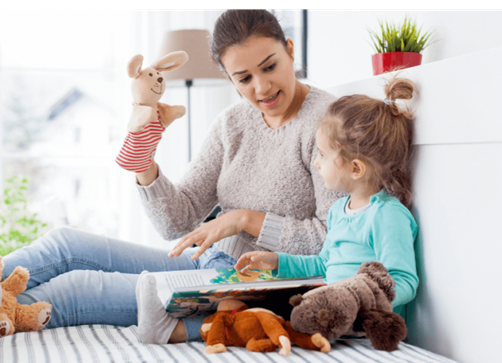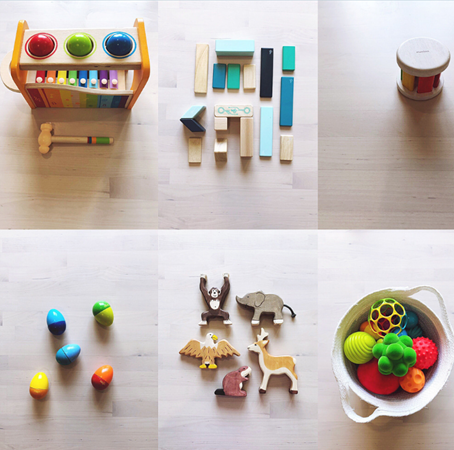Unlocking the Magic: The Power of Play in Enhancing Early Learning
Do you remember the pure joy of playtime during your childhood? Building sandcastles, pretending to be pirates, or simply running around the playground – it was all part of the magic of being a kid. But did you know that playtime isn't just about fun? It's also a powerful tool for enhancing learning, especially during the crucial early years of a child's life.
Discover how the simple act
of play can be a powerful tool in shaping young minds. From nurturing
creativity and imagination to developing crucial social skills and enhancing
cognitive abilities, this blog delves into the incredible benefits of play
during the early years. Explore the science behind play, learn how to make
playtime effective, and find out why play is not just fun but the foundation of
lifelong learning.
The Role of Play in EarlyLearning
From the moment a child is
born, they begin to explore the world around them through play. Play isn't just
a frivolous activity; it's a child's way of making sense of their environment.
In fact, it's a vital component of early learning, nurturing essential skills
and attributes such as:
Through imaginative play,
children can become anything they want - from astronauts exploring distant
planets to chefs cooking up fantastical feasts. This fosters creativity,
problem-solving, and the ability to think outside the box.
It's remarkable how simple
objects like cardboard boxes can transform into spaceships, encouraging
resourcefulness and imaginative thinking.
1.
Social
Skills
Playtime is a social affair.
Children learn to share, take turns, and collaborate while playing games or
participating in group activities. These interactions are the building blocks
of important social skills. Moreover, conflicts and negotiations that arise
during play teach children valuable lessons in conflict resolution and
teamwork.
3. Cognitive Development
Playing with puzzles,
building blocks, or even sorting games enhances cognitive skills. It sharpens
their minds, helping them develop concepts of shape, size, numbers, and even
early math skills. For instance, constructing a tower with blocks requires
spatial awareness and problem-solving skills that will serve them well in their
academic journey.
4. Emotional Regulation
Play also provides a safe
space for children to express their emotions and learn how to manage them.
Whether it's through role-play or storytelling, children learn to empathize with
and understand different feelings. This emotional intelligence is invaluable as
they grow and interact with a diverse range of individuals.
5. Language Development
Engaging in play, especially
storytelling and pretend play, enriches a child's vocabulary and communication
skills. They learn to express themselves and understand the power of words. In
addition to building vocabulary, storytelling and conversations during playtime
enhance their language fluency and comprehension, setting a strong foundation
for literacy.
The Science Behind Play: Nourishing
Growing Minds
Research in early childhood
education and psychology has illuminated the profound relationship between play
and brain development, shedding light on the incredible journey that unfolds
within a child's mind during playtime. It's not merely a matter of fun and
games; it's the nourishment that young brains crave to flourish.
Play goes beyond just
enhancing problem-solving, creativity, and social intelligence. It also
contributes significantly to a child's overall development. Engaging in play
improves confidence, memory, cognitive skills, and language proficiency.
Furthermore, it hones motor
skills as children actively explore their surroundings and engage in physical
activities. From drawing and painting to dreaming up new worlds, playing games,
and learning through hands-on experiences, every moment of play is an
opportunity for young minds to grow and thrive. In essence, play is a holistic
learning experience that shapes well-rounded individuals ready to embrace the
challenges and wonders of the world.
Making Playtime Effective: A
Balancing Act
While play
undeniably offers numerous benefits, optimizing its educational potential
requires a thoughtful approach. Striking the right balance between unstructured
free play and structured play can significantly enhance a child's development.
Educators and parents alike play a crucial role in fostering this enriching
play environment.
§ Variety of Age-Appropriate Toys and Games: Offering diverse, age-appropriate toys and games is crucial for engaging and educational playtime.
It stimulates various aspects
of a child's development, letting them explore their interests and talents.
§ Active Participation in Play: Actively engaging in play with children is a potent way to
scaffold their learning. Adults guide, ask questions, and encourage critical
thinking, deepening the learning experience and strengthening the bond.
§ Safe and Stimulating Play Environment: The physical space for play matters significantly. It should
be safe, well-organized, and inspiring. A well-designed environment fosters
curiosity and creativity. Ensure it's free from hazards, and consider adding
books, art supplies, and educational materials.
§ Solo and Group Play: Encouraging
a mix of solo and group play helps children develop diverse skills. Solo play
boosts independence and imagination, while group play promotes collaboration
and problem-solving. Balancing these modes ensures a comprehensive learning
experience.
Conclusion: Cultivating Lifelong Learners
through Play
In the early years of a
child's life, play is not just play; it's the foundation of learning. Through
the power of play, children become explorers, creators, and problem solvers,
fostering curiosity, creativity, and emotional intelligence. In a world that is
rapidly evolving, play nurtures the very skills essential for success in the
21st century.
As parents, educators, and
advocates for early childhood development, it is our responsibility to preserve
and promote the magic of play. Let's ensure that every child has access to safe
and stimulating play environments, rich with diverse experiences. So, let us
pledge to keep the magic of play alive for generations to come. Let us champion
play as the cornerstone of education, for within those moments of fun and
laughter lies the power to shape brilliant minds and create a brighter future
for all.
#earlylearning #playtime
#childdevelopment #educationforall









Comments
Post a Comment